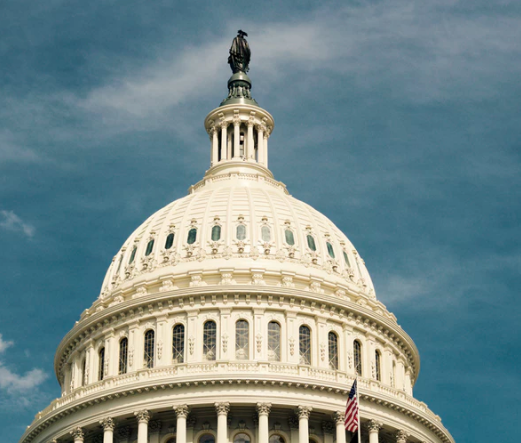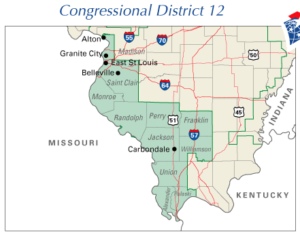
Prompt Images
By holding its federal and state primaries in March, Illinois gifted the political class eight months of general election campaigning. The state’s geographic and demographic profile is a microcosm of the U.S. – a high-population urban core in the north, leafy suburbs, sprawling exurb communities, and a rural farm belt stretching from eastern Iowa to western Kentucky.
The 12th district extends from the St. Louis suburbs to Paducah, Kentucky and is shaped like an upside-down lowercase h.
The current representative of this mostly rural area is Republican Mike Bost.
A sophomore member of the Republican Party who gained fame for a speech (rant, some say) about the unfairness of being given only 20 minutes to vote on a bill. Democrats thought his speech made him appear angry and would hurt his electoral chance when he ran for this seat in 2014. There must have been a lot of angry people in the 12th district because that didn’t stop him from notching a significant victory over a sitting Democratic congressman in 2014 or sending him back to D.C. for his second term in 2016, this time with an even larger margin.

His 2018 opponent is Brendan Kelly, a veteran and the current state attorney for St. Clair County, Illinois whom D.C. Democrats recruited in part because of his made-for-TV biography. Kelly’s far from being a Bernie Sanders liberal. He pledged to not vote for Nancy Pelosi as speaker next Congress if the Democrats retake the House, and his candidacy was endorsed by the Blue Dog Coalition, a group of moderate-to-conservative House Democrats who tend toward the fiscal austerity (for Democrats) and bipartisan solutions.
Although Mike Bost is a down-the-line conservative (according to fivethirtyeight.com, he’s voted for 98.4% of President Trump’s preferred positions,) voters in the district aren’t so orthodox. They supported President Obama in 2008 and again in 2012 before flipping to President Trump in 2016.
These are the archetypal voters who love Medicare but don’t mind if the wealthy get taxed more.
Immigration and trade concern them, and they’re tired of government dysfunction, whether it’s up the road in Springfield or across the country in Washington.
There’s visible enthusiasm from Democrats in the district. Both candidates handily defeated little-known challengers, but 11,613 more votes were cast in the Democratic primary (49,382 to 37,769) which fits an observable trend since January 2017. The national political climate and millions of dollars spent on advertisements (sorry, St. Louis) will be impactful on the race’s outcome, but it might come down to who runs the better campaign, which candidate connects better with voters, and what his message will be.
If Republicans lose this seat, chances are they’ve already lost their majority.
And if Democrats can’t take this seat, what does it say about their chances to make inroads across the country in similar areas? Stay tuned for the answer!
The Rundown:
2016 presidential results: Trump, 55% – Clinton, 40.2%
2012 presidential results: Obama, 49.7% – Romney, 48.2%
Net change 2012 – 2016: R+16.3
Fundraising, Q1 2018: Kelly, $585,000 – Bost, $535,000
The crosstab Democratic pickup: 31%
Cook Political Report: toss-up



